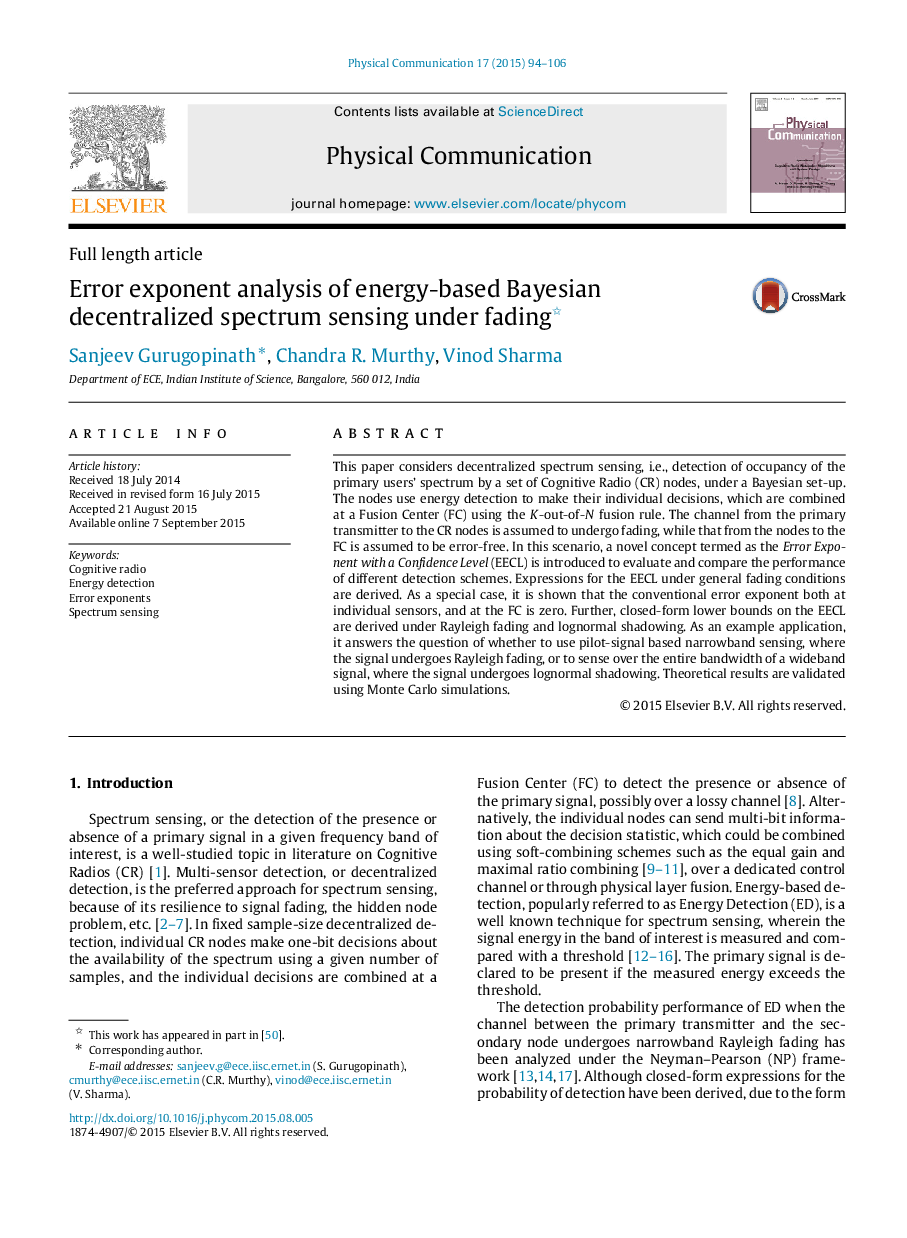| Article ID | Journal | Published Year | Pages | File Type |
|---|---|---|---|---|
| 465791 | Physical Communication | 2015 | 13 Pages |
This paper considers decentralized spectrum sensing, i.e., detection of occupancy of the primary users’ spectrum by a set of Cognitive Radio (CR) nodes, under a Bayesian set-up. The nodes use energy detection to make their individual decisions, which are combined at a Fusion Center (FC) using the KK-out-of-NN fusion rule. The channel from the primary transmitter to the CR nodes is assumed to undergo fading, while that from the nodes to the FC is assumed to be error-free. In this scenario, a novel concept termed as the Error Exponent with a Confidence Level (EECL) is introduced to evaluate and compare the performance of different detection schemes. Expressions for the EECL under general fading conditions are derived. As a special case, it is shown that the conventional error exponent both at individual sensors, and at the FC is zero. Further, closed-form lower bounds on the EECL are derived under Rayleigh fading and lognormal shadowing. As an example application, it answers the question of whether to use pilot-signal based narrowband sensing, where the signal undergoes Rayleigh fading, or to sense over the entire bandwidth of a wideband signal, where the signal undergoes lognormal shadowing. Theoretical results are validated using Monte Carlo simulations.
